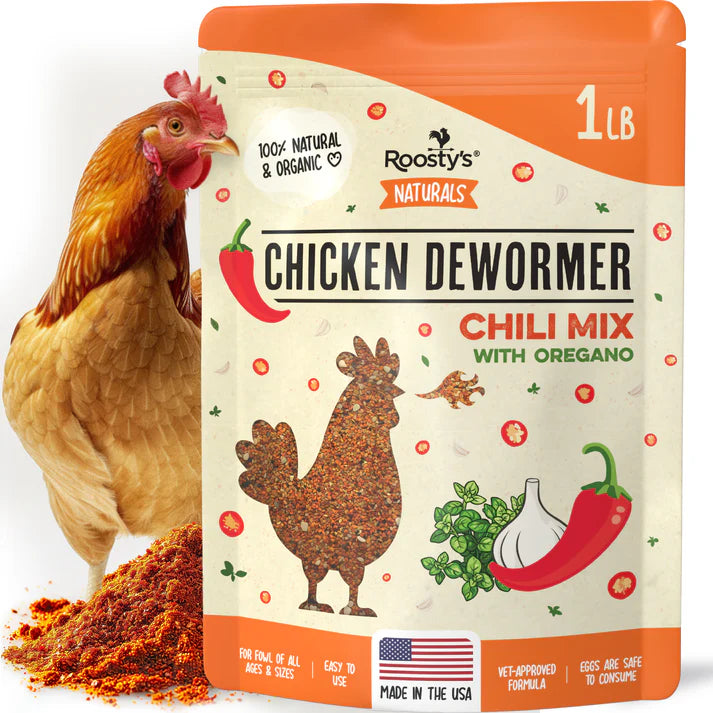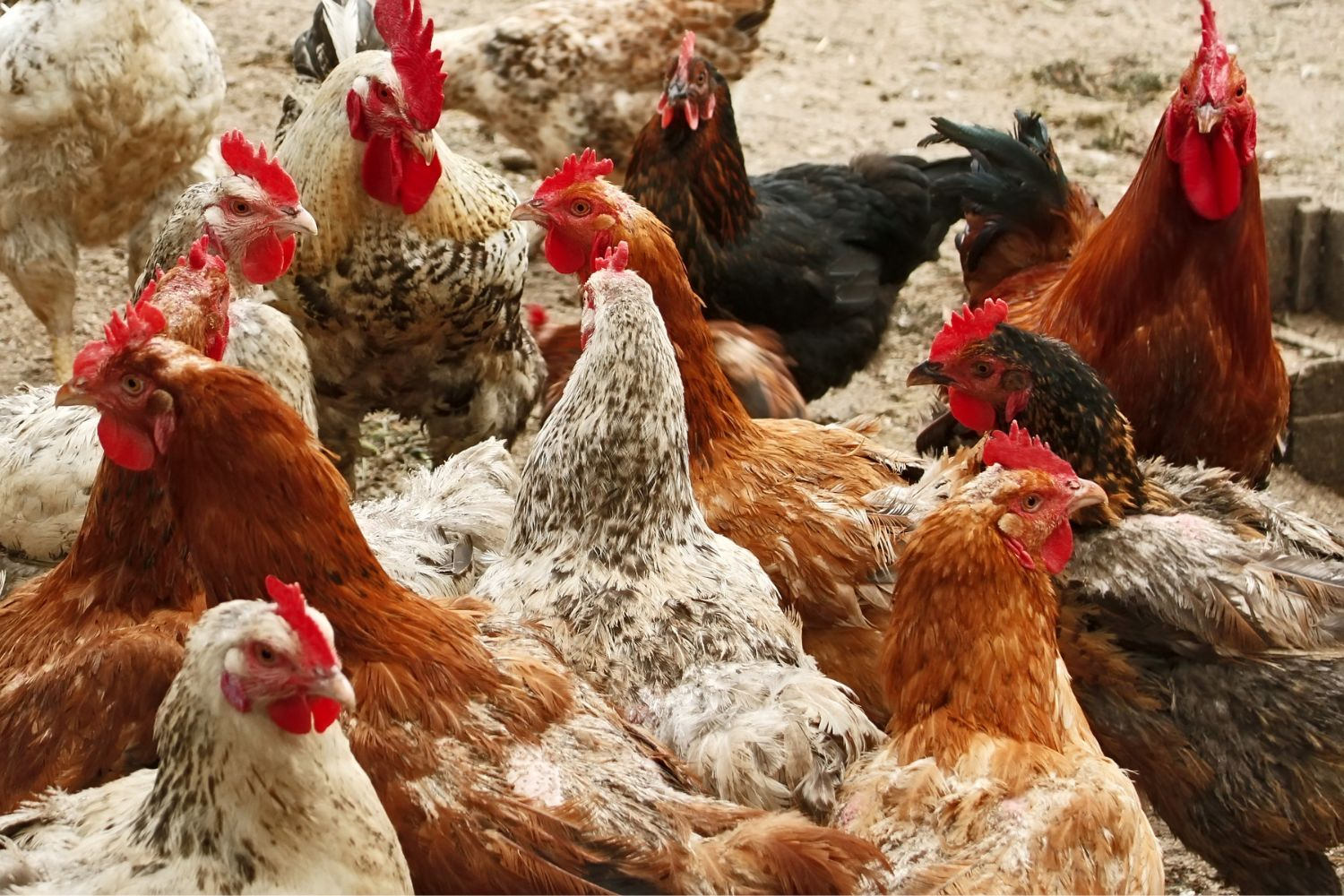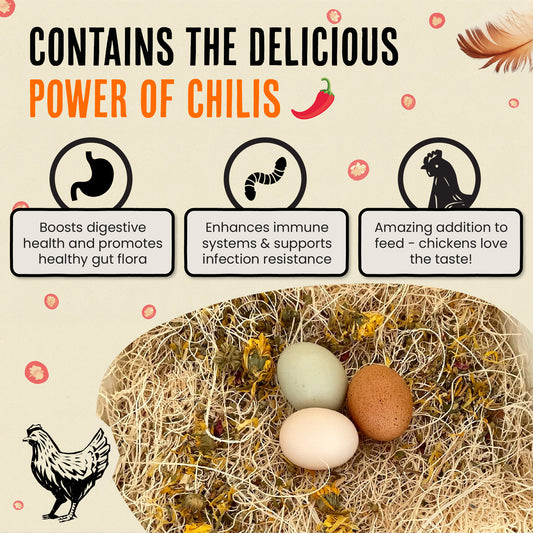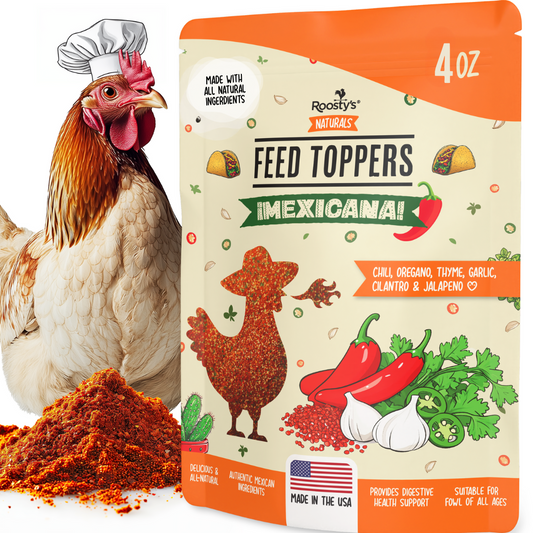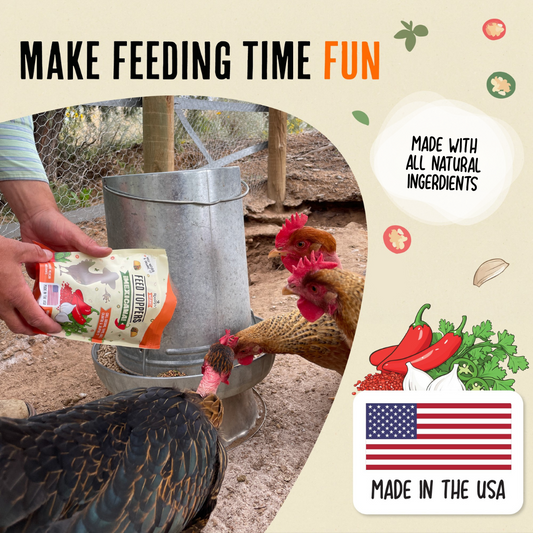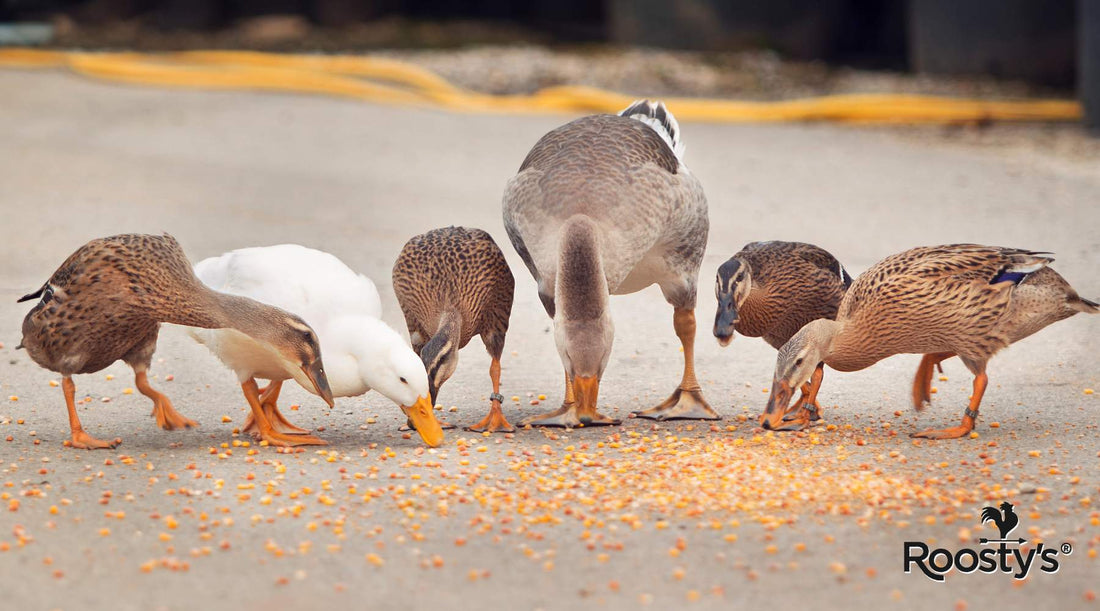
Can Ducks Eat Chicken Feed? A Guide to Feeding Ducks and Their Dietary Needs

The short answer is “yes,” ducks can eat chicken feed. However, you’ll need to make some modifications to make it safe.
Never feed ducks solely on chicken feed long-term as it does not contain the proper balance of nutrients they require.
This post discusses everything you need to know about feeding ducks chicken feed.
We look at food and supplement requirements for the entire lifecycle based on our extensive research, including how to modify chicken feed to make it safe.
Feeding Ducks: Can They Eat Chicken Feed?
Technically speaking, ducks can eat chicken feed. However, they should only consume it temporarily. Ducks and chickens are very different types of birds and have unique nutritional needs.
On reflection, this makes sense. Domesticated ducks were originally pond, lake, and river-dwelling animals. Their food came from the water and riverbanks.
By contrast, chickens came from junglefowl, native to Southeast Asia. They lived in forested environments and scavenged for food on the floor, eating insects, small fruits, and other tiny organisms.
Over time, humans domesticated ducks and chickens. But their nutritional requirements remained different. Ducks can eat chicken feed short-term, and vice versa, but long-term, it could cause harm.
For instance, ducks require slightly less protein than chickens. Duck feed usually contains 18 to 22% protein for the first two weeks of life and 16% for adult birds (and somewhere between for juveniles).
On the other hand, chickens need 23% protein, going down to 17 to 18% for adult hens. Chickens should only receive scratch as an occasional treat, as it may not contain enough protein for their developmental needs.
Ducks, however, require a slightly different amino acid profile from chickens. The former needs 0.45 to 0.65% methionine, while the latter only requires 0.35 to 0.50%.
Ducks also need more lysine than chickens: 0.9 to 1.15% of calories, while the same figure for chickens is 0.75 to 1.00%.
Micronutrient requirements also differ significantly between the two birds. For example, ducks need more niacin (or vitamin B3), requiring around 40 to 50 mg daily, about twice the figure for chickens.
They also need 20 to 40 IU of vitamin E compared to chickens’ 10-15 IU.
The precise nutrient requirements of your birds will depend on their size, breed, and health status. That’s why we listed ranges in this section. You’ll need to consult an experienced animal husbandry expert to determine what, when, and how to feed them.
--------
Can Ducklings Eat Chicken Feed: What You Need to Know
Ducklings over two weeks shouldn’t eat chicken feed. It contains too much protein, which can cause various health conditions.
For instance, ducklings can develop angel wing, where the wing stub tips flay outwards, causing the feathers to grow at an odd angle instead of flat against the body.
Too much protein and an improper balance of nutrients in their diet severely affects their development.
Ducklings may also develop liver and kidney problems from excessive protein load. The liver can become stressed, and the constant need to filter amino acids from the blood can cause kidney strain, leading to damage and dysfunction.
Finally, high protein levels can cause ducks to grow too quickly. Skeletal deformities such as bow legs or twisted wings impact their fitness, mobility, and quality of life.
To avoid these issues, ensure you feed ducklings a diet recommended by a qualified veterinarian or avian nutritionist.
Feed ducklings a high-protein starter feed for the first few weeks of life and then transition to a lower-protein formula as they get older.
Continuously monitor their growth and development. If you notice any issues, such as angel wing, take them to the vet.
Feeding Ducks: Exploring the Chicken Feed Option

Most people use chicken feed for ducks because it is more affordable. Duck feed is around three times as expensive, according to some estimates.
Fortunately, you can make chicken feed suitable for ducks with simple modifications. For instance, when ducklings are under two weeks, use a high-protein chick starter and manually add the extra niacin birds’ feed.
After that, move them onto a lower-protein broiler mix containing a suitable percentage of protein, around 18 percent. If you can’t find a low-protein option, mix some cracked grains to reduce overall protein consumption.
Also, double-check chicken feed additives. Many broiler mixes contain drugs only FDA-approved for hens. They may be harmful to ducks.
--------
Chicken Feed for Ducks: A Nutritional Guide
Providing chicken feed for ducks is not recommended. However, it is possible with some modifications.
Weeks 1 & 2
For instance, ducks require additional niacin during weeks one and two, as described above. This micronutrient is essential because it helps birds process fats and proteins, produce energy, and maintain healthy skin and feathers.
If you feed chick starter to ducklings, you can increase niacin concentrations by adding brewer’s yeast. Add 1.5 tablespoons per 1 cup of feed and give it to your ducklings.
Most people sprinkle brewer’s yeast on top of their birds’ food to make it more accessible. Mixing it in can result in too much settling at the bottom.
Spraying food with water before mixing in the brewer’s yeast powder helps to make more of it stick. However, it can make the underlying feed moldy and inedible, so you’ll need to replace it daily.
An alternative to brewer’s yeast is to add a liquid niacin supplement to your duckling’s diet by putting it in their water. You need around 500 mg per four gallons.
This approach can work, but it depends on how much water your ducklings consume. And that can be hard to track.
Weeks 2 to 20
Ducklings over two weeks start growing faster, adding more weight relative to their existing mass. Even so, their protein requirements are much lower than chicks at the same age.
Therefore, find a low-protein chick starter with 16% to 18% protein and bulk it out with rolled oats. The oats should comprise around 20 percent of the mix, enough to lower total protein to safe levels.
During this period, continue supplementing your ducks’ diet with niacin. As stated above, they need around 50 mg of niacin per kg of feed, translating to 1.5 tablespoons per cup.
After Week 20
You should continue feeding your ducks this way until they are 20 weeks old. After that, they can transition to chicken layer feed, supplemented by whatever additional food they can find in their run.
Free-range ducks can and will eat all sorts of things, from weeds to grass to bugs. Non-free-range birds will require a more carefully formulated diet to ensure they get all the nutrients they need.
The Dos and Don'ts of Feeding Ducks Chicken Feed

Can ducks eat chicken feed? The answer is nuanced. Yes, short-term or if you add nutrients and reduce protein to reflect ducks’ unique nutritional requirements. No, otherwise.
Here are some quick DO's for feeding chicken feed to ducks:-
- Supplement with niacin. Ducks require a higher level of vitamin B3 than chickens, meaning you should supplement their diet with brewer’s yeast, purified niacin supplements, or greens.
- Provide fresh water. Ducks need access to water sources at all times to maintain their feathers’ condition and wet their feed before swallowing it.
- Gradually transition. When changing the composition of ducks’ feed, change it slightly every day to reduce the risk of digestive issues.
- Provide foraging opportunities. Give ducks opportunities to forage for insects, aquatic plants, and other foods that naturally occur in their diets.
Some DON'Ts for feeding chicken food to ducks include:-
- Use any medicated feed. Many chicken medications are not FDA-approved for ducks and may cause harm.
- Ignore health issues. Take your ducks to the vet immediately if you notice any signs of deformities, such as bowed legs or angel wing.
- Forget about grit. Ducks need small rocks and stones to help them digest food in their gizzards. A lack of grit can cause stomach complaints.
- Rely solely on chicken feed. Find ways to reduce its protein content and add niacin to make it safe for ducks.
So, Can Ducks Eat Chicken Feed?
Reading this article, you now know that ducks can eat chicken feed, but with some modifications. We discovered that:-
- Ducks are very different from chickens and have unique nutritional requirements.
- Ducks can eat chicken feed, but you must modify their food by reducing protein and adding niacin.
- Free-range ducks can forage for additional nutrients they may require, but non-free-range birds require careful nutritional formulations.
- You can feed chick and chicken feed to hatchlings, growers and full-size ducks but, again, you need to make modifications.
With all that said, you are ultimately better off picking duck-specific food for every stage of life. Formulating your own from chicken feed is risky, and ducks may not get the nutrients they require.
--------
